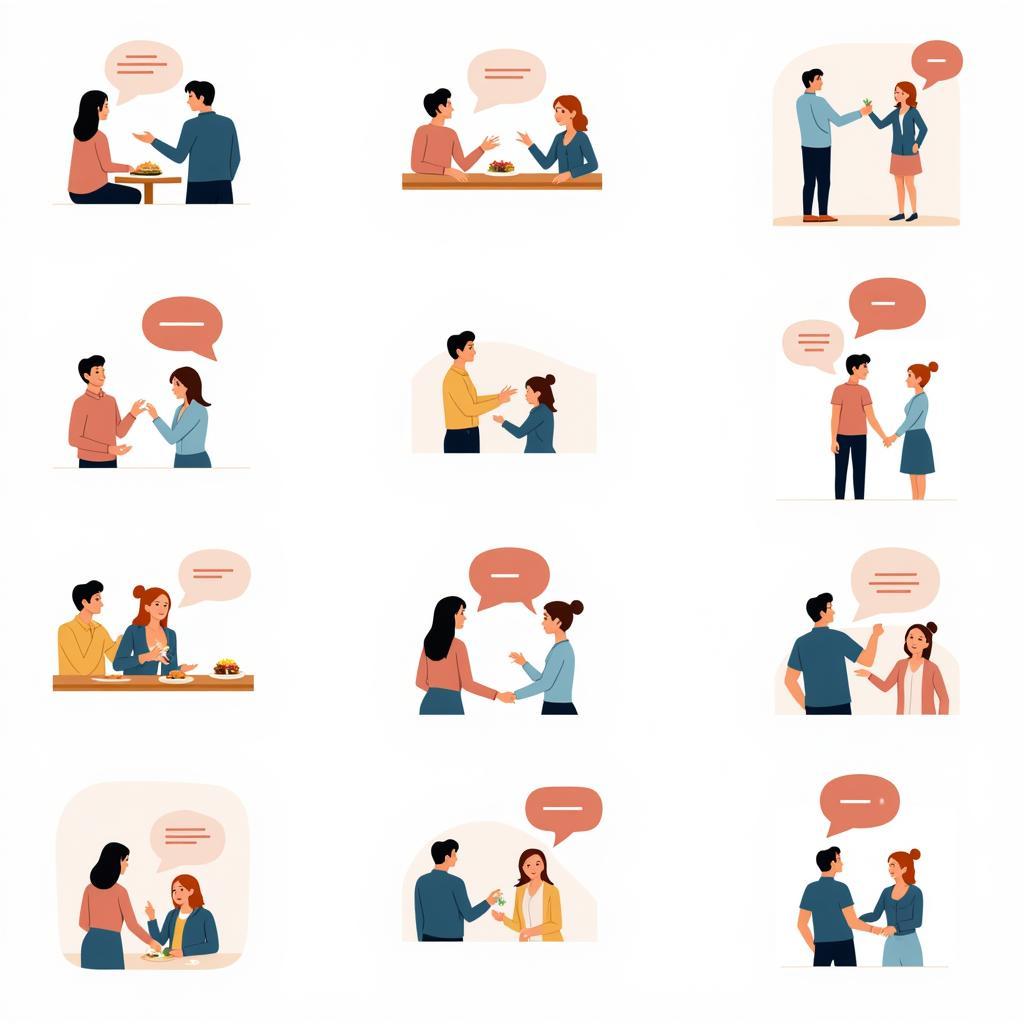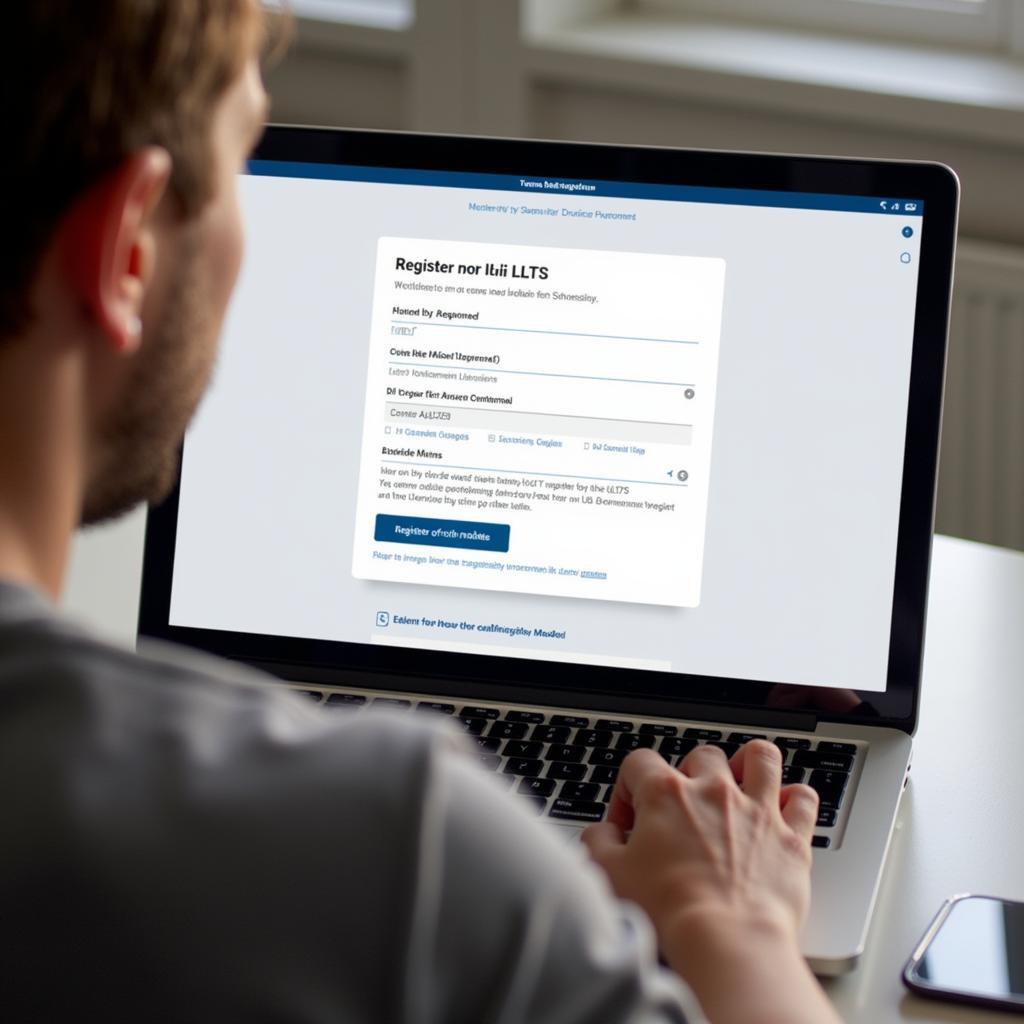Learning how to make polite requests in English is crucial for effective communication. Whether you’re asking for directions, ordering food, or seeking assistance, using the right phrases can make a world of difference. This guide will equip you with the essential vocabulary and structures to sound polite and confident in various situations.
 Making Polite Requests
Making Polite Requests
Why Are Polite Requests Important?
In any language, the way you phrase your requests directly impacts how others perceive you. Using polite language demonstrates respect, consideration, and a willingness to cooperate. This is particularly important in English-speaking cultures, where politeness is highly valued.
Essential Phrases for Making Polite Requests
Let’s explore some common phrases you can use to make polite requests in English:
1. “Could you please…?” This versatile phrase is suitable for a wide range of requests.
Example: “Could you please tell me where the nearest coffee shop is?”
2. “Would you mind…?” This phrase is ideal for asking someone to do something for you, especially if it might be a slight inconvenience.
Example: “Would you mind closing the window? It’s a bit chilly.”
3. “I was wondering if you could…?” This more formal phrase is appropriate when asking for a favor or making a request that requires more effort.
Example: “I was wondering if you could help me carry these boxes.”
4. “Would it be possible to…?” Use this phrase for requests that are uncertain or require permission.
Example: “Would it be possible to reschedule our meeting for tomorrow?”
5. “I’d appreciate it if you could…” This phrase expresses gratitude in advance, making your request sound more polite and sincere.
Example: “I’d appreciate it if you could send me the document by Friday.”
 Examples of Polite Conversation
Examples of Polite Conversation
Adding a Touch of Extra Politeness
To enhance the politeness of your requests, consider these tips:
-
Use modal verbs: “Could,” “would,” “may,” and “might” are your go-to modal verbs for polite requests.
-
Say “please” and “thank you”: These simple words go a long way in conveying politeness and gratitude.
-
Use polite intonation: Your tone of voice matters. Speak in a friendly and respectful manner.
-
Offer an explanation: If appropriate, briefly explain why you’re making the request.
Common Mistakes to Avoid
-
Being too direct: While directness is valued in some cultures, it can come across as rude in English.
-
Using informal language: Avoid slang or overly casual language, especially in professional settings.
-
Forgetting to say “please” and “thank you”: These are essential components of polite communication in English.
Mastering Polite Requests Takes Practice
Like any language skill, mastering polite requests in English takes practice. Start by incorporating these phrases and tips into your daily interactions. Pay attention to how native speakers phrase their requests and try to emulate their style.
By making a conscious effort to be polite, you’ll build stronger relationships, navigate social situations with ease, and enhance your overall communication skills.
Frequently Asked Questions About Polite Requests in English
1. What are some other ways to say “Could you please…?”
- “Would you be able to…?”
- “Do you think you could…?”
- “I’d be grateful if you could…”
2. How do I make a polite request in an email?
- Use a formal salutation (e.g., “Dear Mr./Ms. [Name]”).
- Clearly state your request using polite language.
- End with a professional closing (e.g., “Sincerely,” “Best regards”).
3. What if someone refuses my polite request?
- Accept their refusal gracefully.
- Thank them for their time and consideration.
 Responding to a Polite Refusal
Responding to a Polite Refusal
Need More Help With Your English Communication Skills?
Check out these other helpful resources on our website:
Don’t hesitate to contact us for personalized assistance. Call us at 02033846556, email us at [email protected], or visit our office at 178 Ba Lan, Giếng Đáy, Hạ Long, Quảng Ninh, Việt Nam. Our dedicated team is available 24/7 to support your language learning journey.


